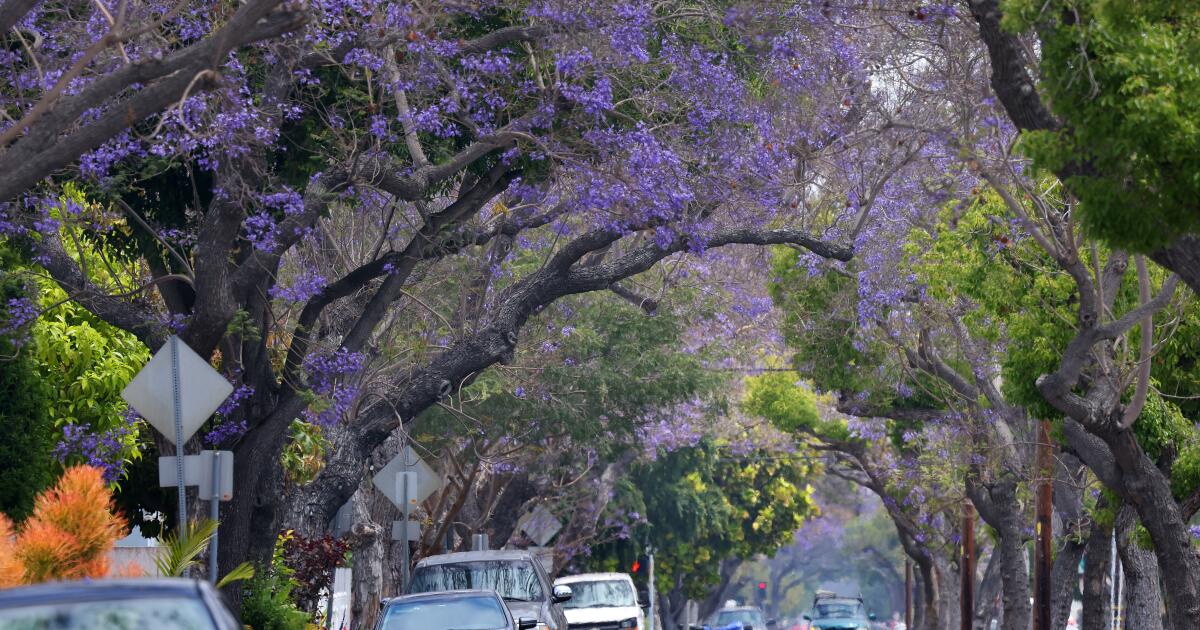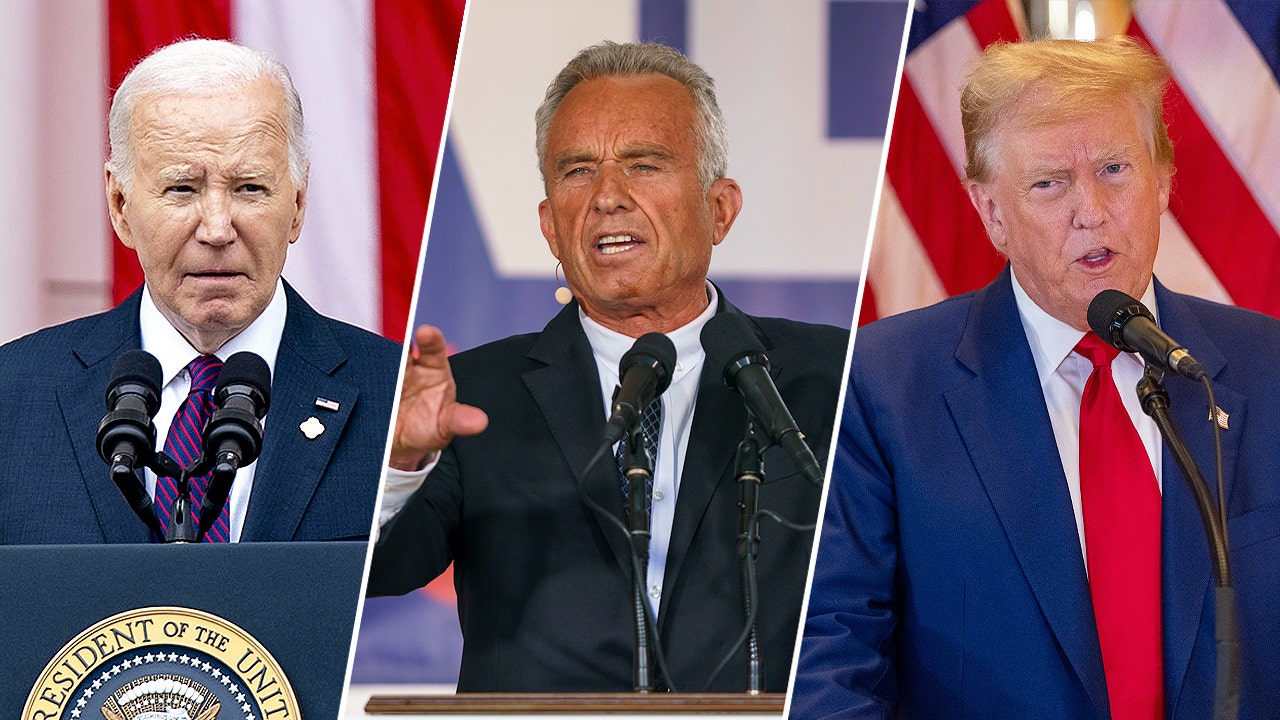Alaska
State legislators, governor prepare for session’s start this week

ANCHORAGE, Alaska (KTUU) – While dozens of bills were shared with the public last week as part of the Alaska State Legislature’s prefiled bills releases, lawmakers are gearing up for a session that will see a range of topics considered by the House and Senate, as Gov. Mike Dunleavy does the same.
“I look forward to the next 121 days of working with lawmakers on what matters most to Alaskans,” Dunleavy said in a prepared statement from his office. “While we may have different opinions on policy issues, we are all striving to reach the same goal of making Alaska a better place to live and raise a family.”
Dunleavy’s office wrote that improving public safety and public education outcomes, making sure people know Alaska is “open for business,” and honing in on energy opportunities across the state are also among his priorities.
At the same time, a couple of the lawmakers who chose to file legislation ahead of the start of the session also spoke Monday about their decisions to introduce bills early, as well as some of the other priorities they see going into this session.
One of them is Sen. Shelley Hughes, R-Palmer, who introduced a bill that would require that school districts assign certain highly-trained individuals to carry a concealed firearm on school grounds.
“We’re being very thoughtful about that,” she said, “because we want parents and community members and leaders to feel comfortable with this, that this role is being assigned to someone, not on a willy-nilly basis, but under a very careful process.”
Hughes said a retired teacher who lives in Palmer – a constituent, who was a teacher at the time of a shooting at Bethel Regional High School in 1997 and is left of center, according to Hughes – came to her with the idea for the bill.
“I believe this, also, is bipartisan,” Hughes said, adding that response times in certain schools could be much longer than in others, even when simply based on access to communities. “Our students should not go to school with any fear like this. They should know that they can relax, and be there to do what they’re supposed to do: learn, and be prepared and equipped to be productive citizens.”
The state senator is also leading the charge when it comes to multiple other prefiled bills, such as SB 172, which would extend senior benefits while lengthening the time before the Legislature must review that program, pushing that to 2034.
Another bill she sponsored, SB 177, targets artificial intelligence, deepfakes, cybersecurity and data transfers. If passed, it would demand that election campaigns using any sort of deepfakes disclose that use and bars the transfer of data between state agencies, unless the individual whose data is being shared consents first.
“It took a little longer than usual for the drafting of this bill, because it’s so brand new,” Hughes said. “I believe it’s the very first bill on AI in our state. So when it came back, there wasn’t really time to go back and forth, back and forth, tweaking every word and getting everything exactly right.
“So I expect there to be changes, and I want there to be improvements,” she said, adding that this bill – like others of hers – is about protecting Alaskans. “Once the bill is filed, it goes into the hands of committees, where those improvements are going to be made. So I don’t want anybody to think that right now, this bill is in perfect condition.”
Hughes said she also expects to spend a great deal of time on agricultural industry policies, plans to help push through trafficking laws, and hopes to see increased educational funding attached to improving academic performances in areas across the state.
Among other pieces of legislation, Rep. Andy Josephson, D-Anchorage, filed HB 261, which would, in part, establish a vehicular homicide offense in state statute.
“Forty-seven of 50 states do have a separate vehicular homicide statute,” he explained. “The benefit is that it’s more intuitive, I think, for a jury to understand how the offense happened, the nature of the offense, why it is a crime — because under current law, we use homicide and assault statutes to proscribe or to criminalize what is really vehicular homicide.”
Like Hughes, Josephson has multiple prefiled bills he submitted. His HB 239 would add post-traumatic stress disorder as an allowable claim for workers’ compensation under certain circumstances and for specific groups, such as fire fighters, police, emergency dispatchers, emergency medical technicians and others.
“The idea of affording fire and police the opportunity to have some period under workers’ comp benefits while they are dealing with post-traumatic stress is something, again, that other states have,” he explained. “We know that police and fire in Alaska have sought this sort of reform for a long time. No doubt, municipalities will be concerned about the cost to workers’ comp premiums and what that kind of impact that would have on their treasuries, but that’s a reform that our first responders have wanted.”
Several of his other bills are healthcare-related, to include HB 248, which would require separate consent for any sort of pelvic examination, whether by a full health care provider or students receiving instruction or individuals participating in clinical training.
Josephson also explained part of his thinking in filing a large number of bills ahead of the session, noting that prefiling is a privilege afforded to legislators, and that, come February of the second session of each legislature, personal legislation can no longer be filed.
“You don’t know what’s going to catch on,” he said. “The advantage of a prefile bill is that you’re utilizing the entire 121 days, theoretically. But the other advantage is, it sort of lights a fire under the legislative office to get the work done so that you’re not busy in February writing bills.”
The lawmaker out of Alaska’s largest city said he expects contention over a number of bills, to include a bill that focuses on the sharing of information regarding reproductive health of female patients across state lines.
“We’re concerned that this is pretextual, that this is merely a means of punishing someone,” Josephson said. “There shouldn’t be a sort of fishing expedition that goes on because she chose to do that.”
While many bills this session are modeled off legislation from other states, it will be up to the Legislature as a whole to decide what moves through each body and gets to the governor for consideration.
As for Dunleavy, he expanded on some of his priorities on Monday as well, saying in the prepared release from his office that a “major” focus of his for this session is affordability.
“Alaska can be an expensive place to live,” he said, “but we can also do something about it. Food and energy security, childcare, access to land, and healthcare are the key areas we need to work on to make Alaska an even better place to live.
“But as we work to solve these issues,” he continued, “we must ensure that we are not focused only on the short term, but that our work sets up Alaska to be prosperous over the next 50 years.”
The second session of the 33rd Legislature begins on Jan. 16, 2024.
Copyright 2024 KTUU. All rights reserved.

Alaska
Gardening Tips: Successfully cultivating red rhubarb in Alaska

FAIRBANKS, Alaska (KTVF) – Among the wide world of vegetables, a popular one to grow in the Alaskan Interior is rhubarb.
Glen Risse, Co-Owner of Risse Greenhouse, said, “Rhubarb is something we enjoy growing, and our customers can’t get enough of. We grow a variety called the Canadian Red, which gives you red stalks and makes your pies much prettier than the green stalks.”
These particular rhubarbs are grown using a technique called separation. “They develop plants underground, and we separate them and put them in pots, and over time, they develop much larger plants,” said Risse.
Separation can be done using a shovel, as long as some of the main stalk is in each half. “We’re going to cut this plant right in half. So, attached to the bottom of this plant are these big, long, brown, underground stems, and what you can do… if you just remove some of the larger leaves so the plant isn’t trying to support a bunch up top, this is a great start right here. You put that in the ground, and it will grow.”
While rhubarbs can be planted year round, spring is the best season to separate them.
Risse noted that the leaves on rhubarb are poisonous. “It also is a high consumer of a minor element called molybdenum, so if you can, what’s best is to take your leaves and tear them up and put them back around the base of your plants. This will ensure that you have the molybdenum you need for your plants to grow healthy.”
When picking rhubarb, Risse recommends going all the way down to the bottom of the stalk for a clean grab. “You don’t want to snap it off in the middle, because that will give you a place where the plant could rot.”
Seed pots, meanwhile, can be torn out from the bottom as well and reintroduced into the soil.
While the color of the rhubarb doesn’t affect its flavor, many prefer a red tint for aesthetic reasons when making rhubarb pie. “If your rhubarb isn’t as red as you like, you can take and get a little bit of some ash out of your wood stove and sprinkle it around the base of your plant. That potash will change the PH and your rhubarb will turn red,” Risse advised.
He added, however, that too much ash can kill the plant.
Risse recommends planting individual rhubarb plants about three feet apart, and cutting rhubarb about an inch away from the leaf.
Copyright 2024 KTVF. All rights reserved.
Alaska
Alaska implements limits on cruise ship passengers after record footfall
)
While many businesses benefit from tourist spending, residents are increasingly troubled by noisy helicopters, congested streets and trails, and environmental damage. To address these issues, Juneau has struck a deal with the Cruise Lines International Association in Alaska. The agreement sets daily limits of 16,000 passengers from Sundays to Fridays, and 12,000 on Saturdays
read more
Alaska’s capital city Juneau located on the Gastineau Channel, is taking action to manage the influx of cruise ship tourists, amid rising worries about the impact on local life.
This came also after city saw a record 1.65 million cruise passengers last year, marking a 23% increase from previous highs.
While many businesses benefit from tourist spending, residents are increasingly troubled by noisy helicopters, congested streets and trails, and environmental damage. To address these issues, Juneau has struck a deal with the Cruise Lines International Association in Alaska. The agreement sets daily limits of 16,000 passengers from Sundays to Fridays, and 12,000 on Saturdays.
Alexandra Pierce, Juneau’s tourism manager, highlighted city’s stance on managing growth within its current infrastructure limitations. She highlighted the importance of balancing economic benefits with residents’ concerns and preserving local livelihoods.
Despite this effort, longtime critic of the cruise industry, Karla Hart, remains skeptical. She fears that even with the agreed limits, the city could still see record-breaking arrivals during the 22-week cruise season. Hart is advocating for a local referendum proposing “ship-free Saturdays” to protect community quality of life.
The global cruise industry, rebounding strongly post-pandemic, continues to grow with increasingly large ships. For instance, the Icon of the Seas, launched in January, accommodates over 7,000 passengers and boasts the world’s largest onboard waterpark.
Juneau’s concerns echo those of other cities worldwide grappling with social and environmental impacts from cruise tourism. Venice has banned large cruise ships from its lagoon, while Barcelona and Amsterdam have implemented restrictions and taxes to mitigate these effects.
Hart highlighted ongoing concerns about emissions, ship strikes, and climate change attributed to cruise ship and urged further measures to safeguard Juneau’s environment and community well-being.
Alaska
YMCA of Alaska and Alyeska Ski Resort break down new development plans

The Supreme Court on Friday struck down a Trump-era ban on bump stocks, the rapid-fire gun accessory used in the 2017 Las Vegas mass shooting that killed 60 people — including the gunman — and wounded more than 400. Alaskans reacted to the ruling Friday, many expressing mixed reactions.
-

 Movie Reviews1 week ago
Movie Reviews1 week agoStream It Or Skip It: ‘Under Paris’ on Netflix, a shark-in-the-Seine thriller that delivers the ludicrousness you crave
-

 News1 week ago
News1 week agoWoman handcuffed in police car hit by freight train reaches $8.5M settlement
-

 News1 week ago
News1 week agoIsrael used a U.S.-made bomb in a deadly U.N. school strike in Gaza
-

 World1 week ago
World1 week agoEconomy, migration: Voters' main concerns ahead of elections
-

 Politics1 week ago
Politics1 week agoTrump campaign accelerates vetting of potential running mates
-

 Movie Reviews1 week ago
Movie Reviews1 week agoShort Film Review: Blue and White (2022) by Hiroyuki Nishiyama
-

 World1 week ago
World1 week agoWorld leaders, veterans mark D-Day’s 80th anniversary in France
-

 World1 week ago
World1 week agoFrance to provide Ukraine with its Mirage combat aircraft


















